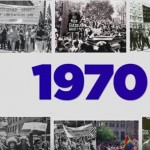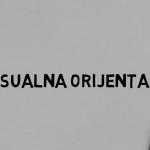 After we have deconstructed the myths related to sexual orientation, gender identity, coming out, as well as to prides in the previous videos, we realize that LGBT people are one of the minority groups that enrich every society, and that the rights that LGBT people advocate for are nothing less but basic human rights and freedoms guaranteed to every person. Therefore, LGBT people are citizens of Bosnia and Herzegovina, and by that, political subjects as well. LGBT people, like all the other citizens, participate in all the political spheres of society, passively – as politicians, representatives of the government, public officers, as candidates for political positions, and actively – by voting in the elections.
After we have deconstructed the myths related to sexual orientation, gender identity, coming out, as well as to prides in the previous videos, we realize that LGBT people are one of the minority groups that enrich every society, and that the rights that LGBT people advocate for are nothing less but basic human rights and freedoms guaranteed to every person. Therefore, LGBT people are citizens of Bosnia and Herzegovina, and by that, political subjects as well. LGBT people, like all the other citizens, participate in all the political spheres of society, passively – as politicians, representatives of the government, public officers, as candidates for political positions, and actively – by voting in the elections.
Based on the assumption that LGBT people make around 10% of every country’s population, we can conclude that they also make 10% of the electoral body. From that derives a new term related to elections and political programmes of the parties – the term “pink vote”. “Pink vote” relates to the LGBT people’s right to vote. Respectively the “pink vote” is every vote of an LGBT person in the elections. The concept came from the United Kingdom, but it soon extended to other developed countries as well. Thereby, the political parties in the United Kingdom consider the LGBT community as one of their obligatory target groups, and conduct serious campaigns in order to persuade them to vote for them.
The question of LGBT people’s status in society was, in the past, exclusively advocated for by the left-, green- or liberal-oriented parties, while this question today, in the developed countries with strong democracies, is also on the agendas of most of the relevant right, conservative and traditional parties. By that, the popularity of those parties didn’t drop, but the contrary – a reinforcement of their democratic grounds occurred.
Despite still being far away from the developed countries, the political scene in Bosnia and Herzegovina is slowly starting to recognize the in-enviable status of LGBT people and of the questions about the ways of solving those problems. According to the analysis previously made, it was established that around 11% of LGBT people in Bosnia and Herzegovina stated they were members of a certain political party, most of them being mainly parts of left- or centre-oriented parties. 21% of the examinees were candidates in the elections in Bosnia and Herzegovina, at least once, while 40% of the examinees voted on the elections in 2010.
Taking into account the afore-mentioned numbers and the results of the elections, we can easily realize that LGBT people in Bosnia and Herzegovina, although being a minority group, can bring a significant difference in the results of the elections. Just like all the citizens, LGBT people must have equal rights and possibilities for participating in the public and political life of Bosnia and Herzegovina.
 Video: Coming out
Video: Coming out Video: Pride Parade
Video: Pride Parade Video: Sexual orientation
Video: Sexual orientation